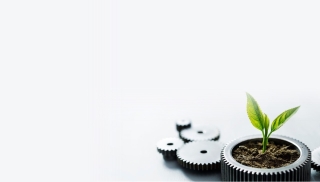INTERVIEW With Koen Verhoef
As head of the Knowledge Transfer & Contracting department at the Netherlands Cancer Institute (NKI), Koen Verhoef performs a diverse range of tasks, from negotiating and concluding all the research contracts required to start up a research project to providing support in translating the results of scientific research into practice. ‘Ultimately, we all want to eradicate cancer and take detection and treatment of cancer to the next level. To make that happen, it takes more than publishing research in scientific journals. The focus of my department lies in supporting researchers and clinicians to achieve that’, says Verhoef.
‘With the researchers, we evaluate the results of specific research projects and try to figure out what the next step towards – for example – developing new diagnostic tests or new cancer drugs might be.’- Koen Verhoef, Head of Knowledge Transfer & Contracting at Netherlands Cancer Institute
The process of converting academic knowledge into societal value is known as valorisation. Valorisation can have an economic component (for example, the creation of new, high-quality jobs in companies that develop new medicines) but that does not have to be the case. ‘For example, if a study has shown that a new chemotherapy combination for treating a person with a particular form of breast cancer is better than the standard combination used up to that point, the treatment guidelines will be adjusted: in the Netherlands, in Europe, and perhaps even in the rest of the world’, explains Verhoef.
The valorisation process does not always involve all of the quadruple helix parties. Nevertheless, entrepreneurs, researchers, government, and citizens complement each other when and where necessary in the process. As an expert by experience, citizens play an indispensable role in sharpening research quests within the healthcare sector. Involving patients in research ensures that their needs are considered in the application. Patient involvement in R&D is of paramount importance for the NKI and its clinicians and researchers. Verhoef explains: ‘NKI not only invites patients to participate in clinical trials testing new treatments. Patients within the NKI are also sometimes asked to participate in research related to the well-being of patients.'
The need for financial support
Optimal valorisation is not yet realised every time and everywhere. It still happens on occasion that valorisation remains limited to the publication of research results. It is important for valorisation experts to be involved early enough (preferably before publication) to file for a patent. This is because once the research results are published, it is no longer possible to obtain a patent in Europe. Without proper protection of intellectual properties via patents for instance, companies are much less willing to take the financial risk of investing in the development of new concepts, products and/or services. ‘Another option of enticing companies to invest in product development is through subsidies for public-private R&D collaborations. Government funding for such collaborations is vitally important’, Verhoef emphasises.
Therefore, funding problems are a major barrier to effective valorisation. Promising research has often been done, but at the same time, a company does not want to enter the product development process until more research has been conducted to reduce the biggest technical risks. “Proof of concept” funding makes such research possible. ‘At NKI, I do not have such funding available, but this would be very useful to us’. Verhoef also highlights an important valorisation instrument that the NKI does have and makes full use of: ‘The popular PPP Allowance of Health~Holland is a crucial instrument for us. This financial subsidy instrument encourages research organisations and companies to jointly invest in research & development with the aim of developing sustainable innovative products and services within the LSH sector. Of every cash Euro invested by a company, Health~Holland adds a bonus of at least 25%. I would like to do a lot more with this.’
Rule number 1 for starting researchers
Verhoef’s tip for new researchers who do not yet know much about valorisation: involve your local knowledge or technology transfer offices and colleagues in your research at the early start. ‘If you think you are on the brink of new technology that could possibly be applied in a new product or process, involve us as early as possible.’
Year in Preview
This interview is one of many interviews in our recently published Year in Preview. Curious about the other subjects in our online magazine? Take a look now!

